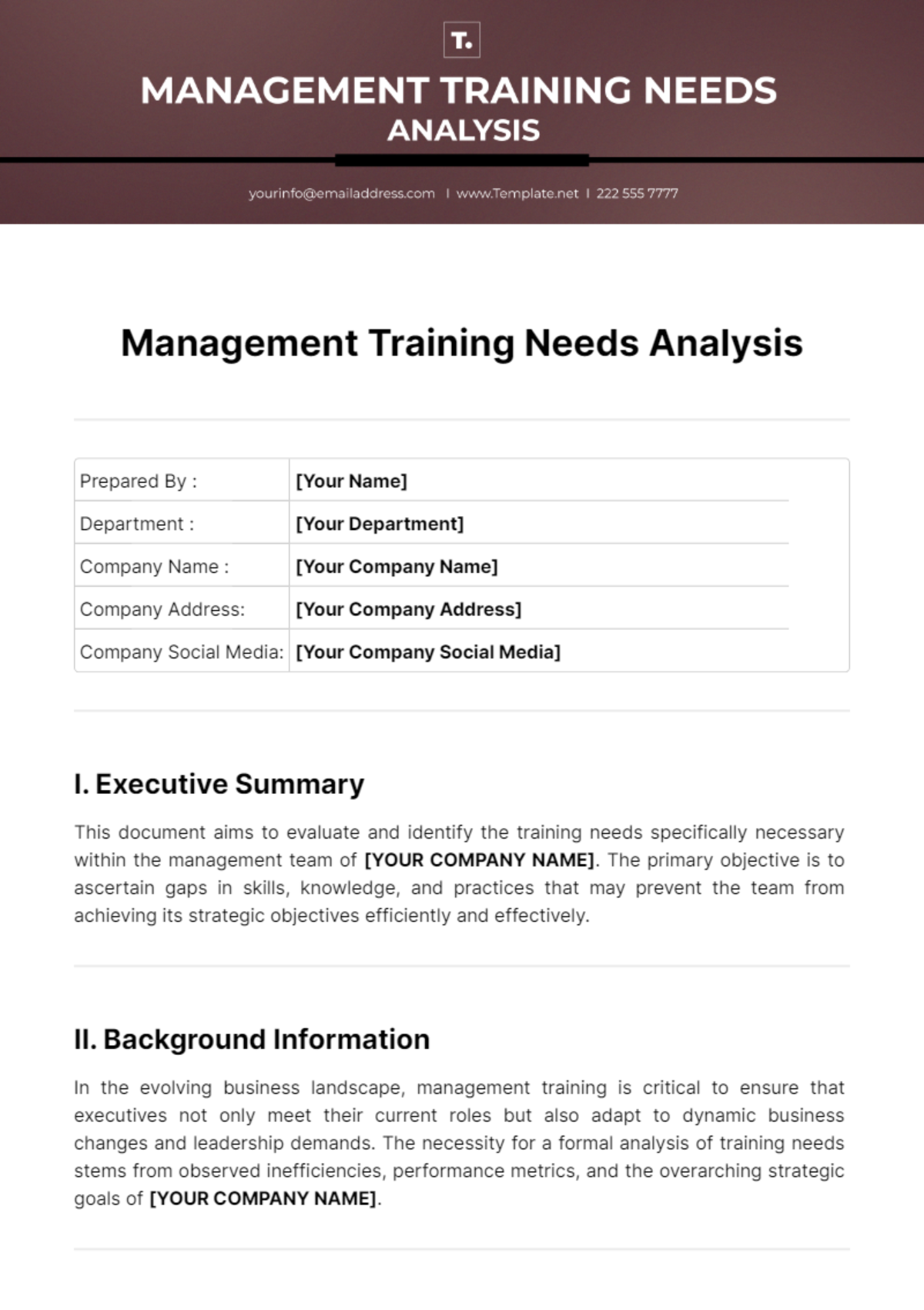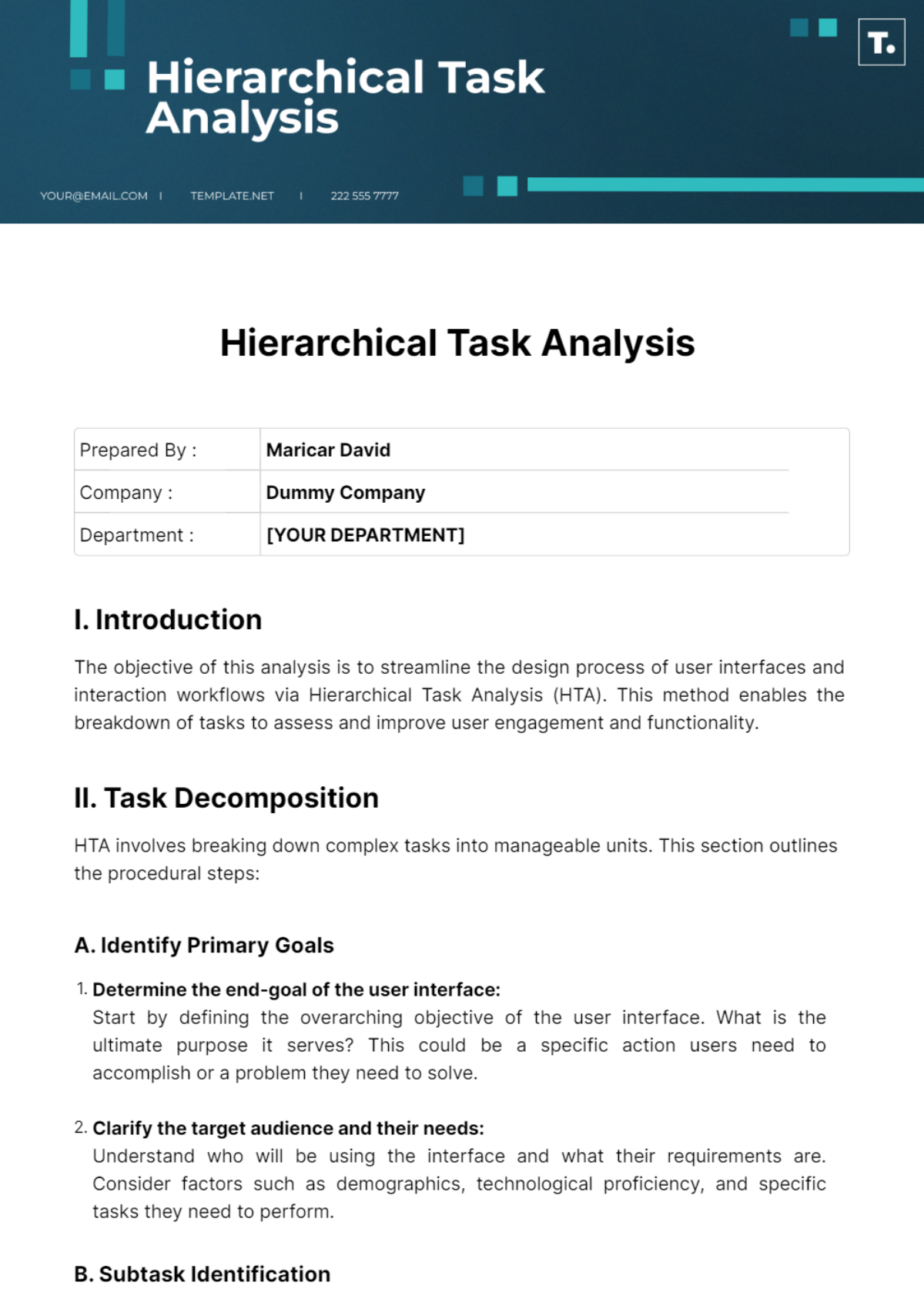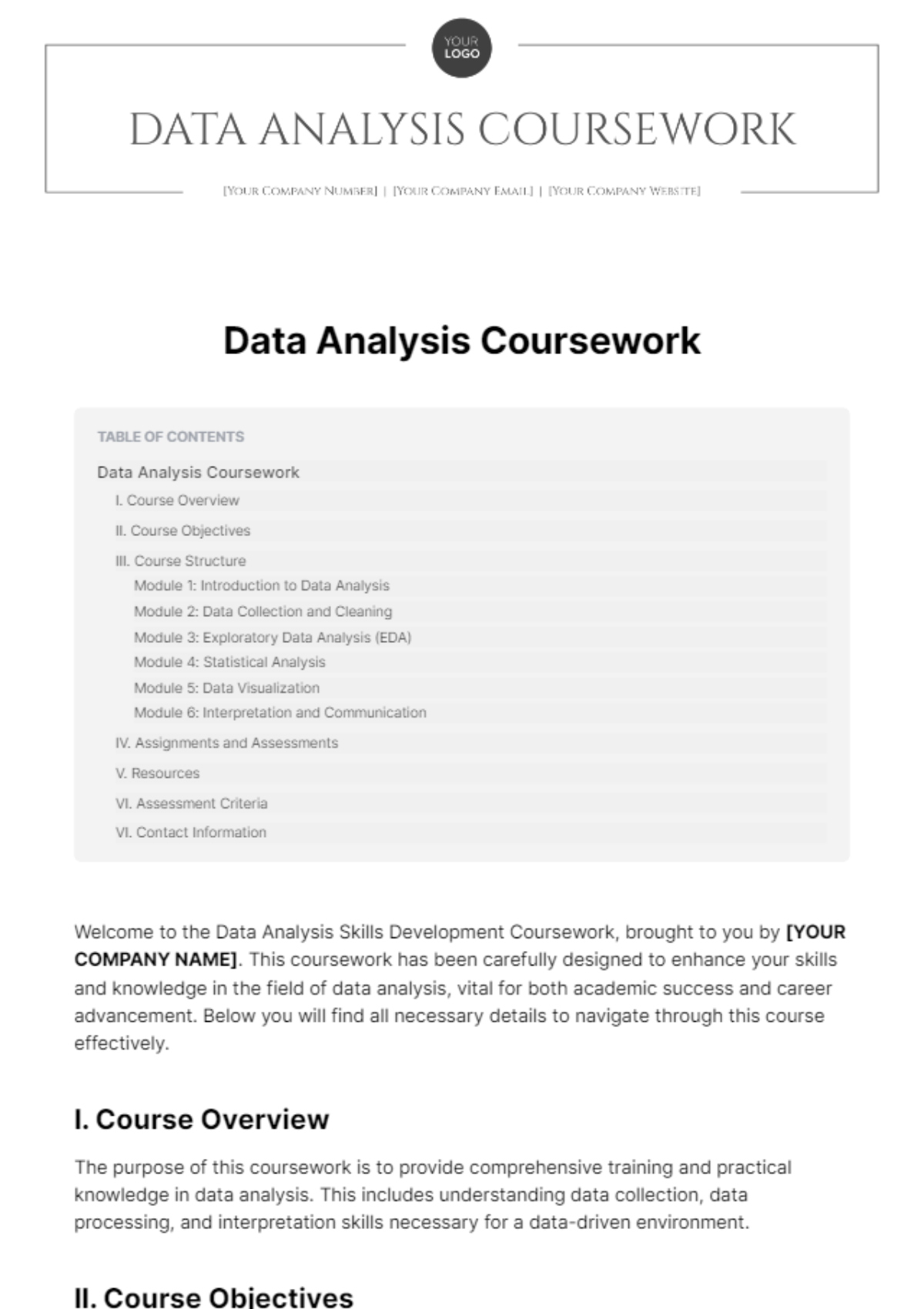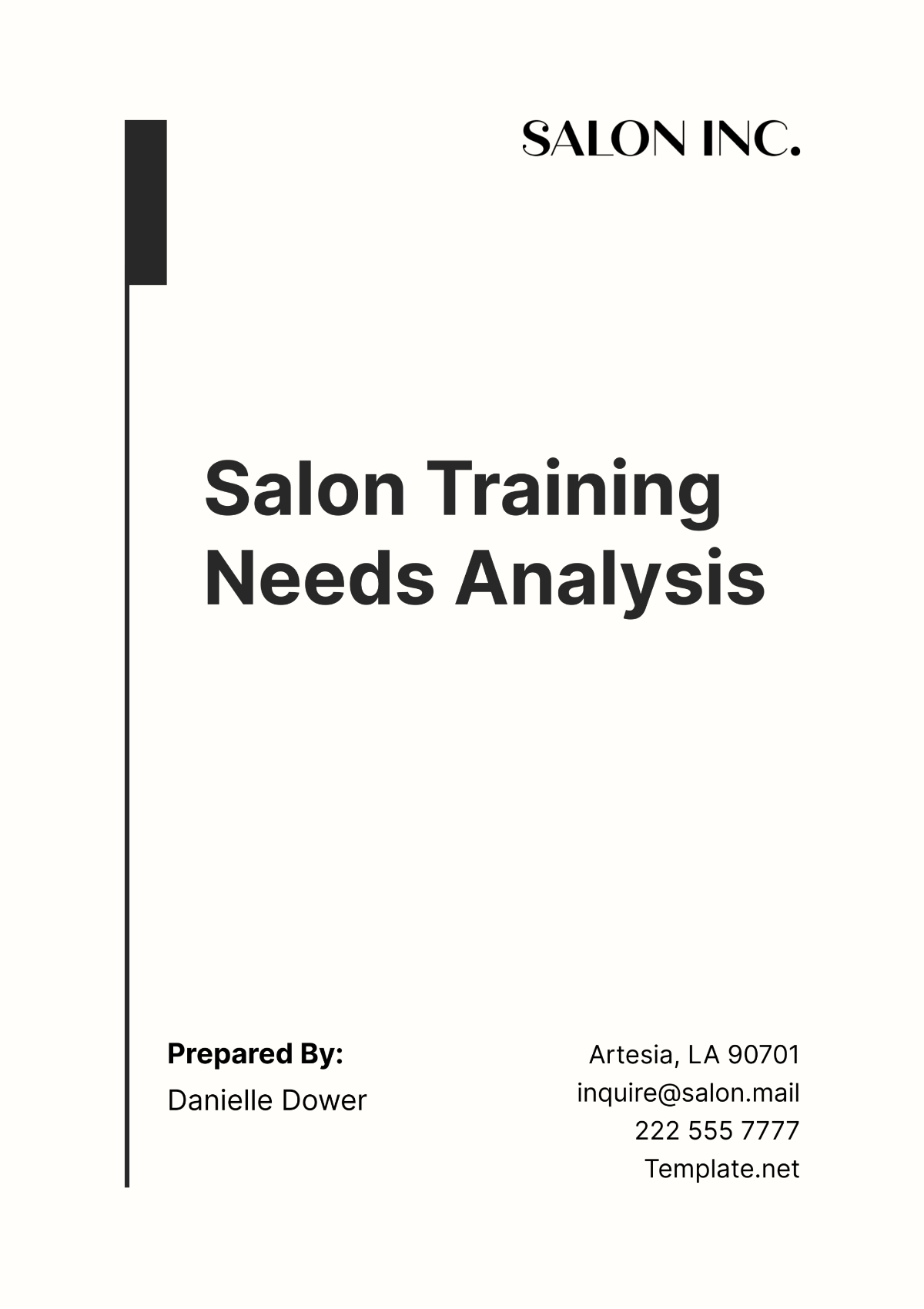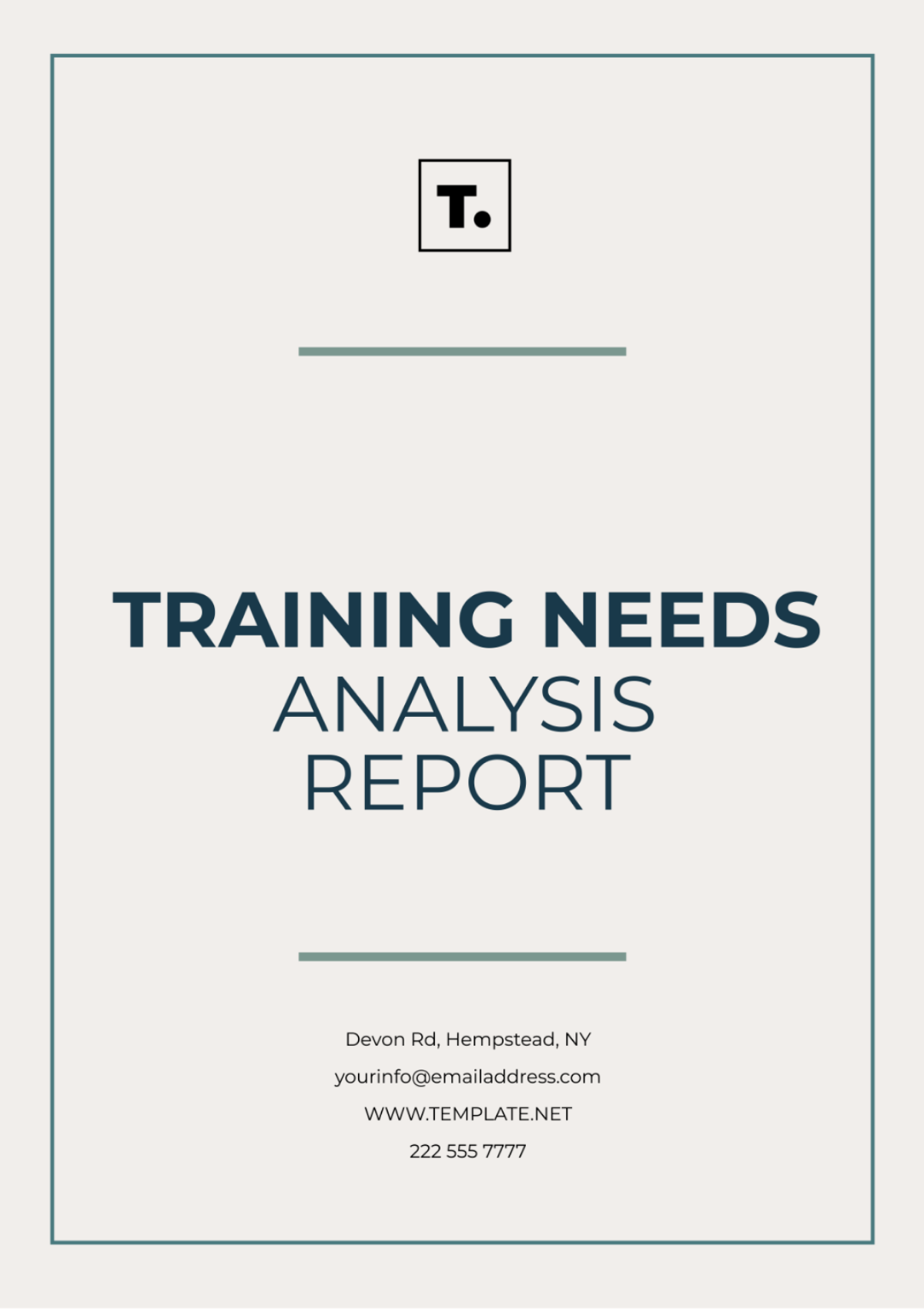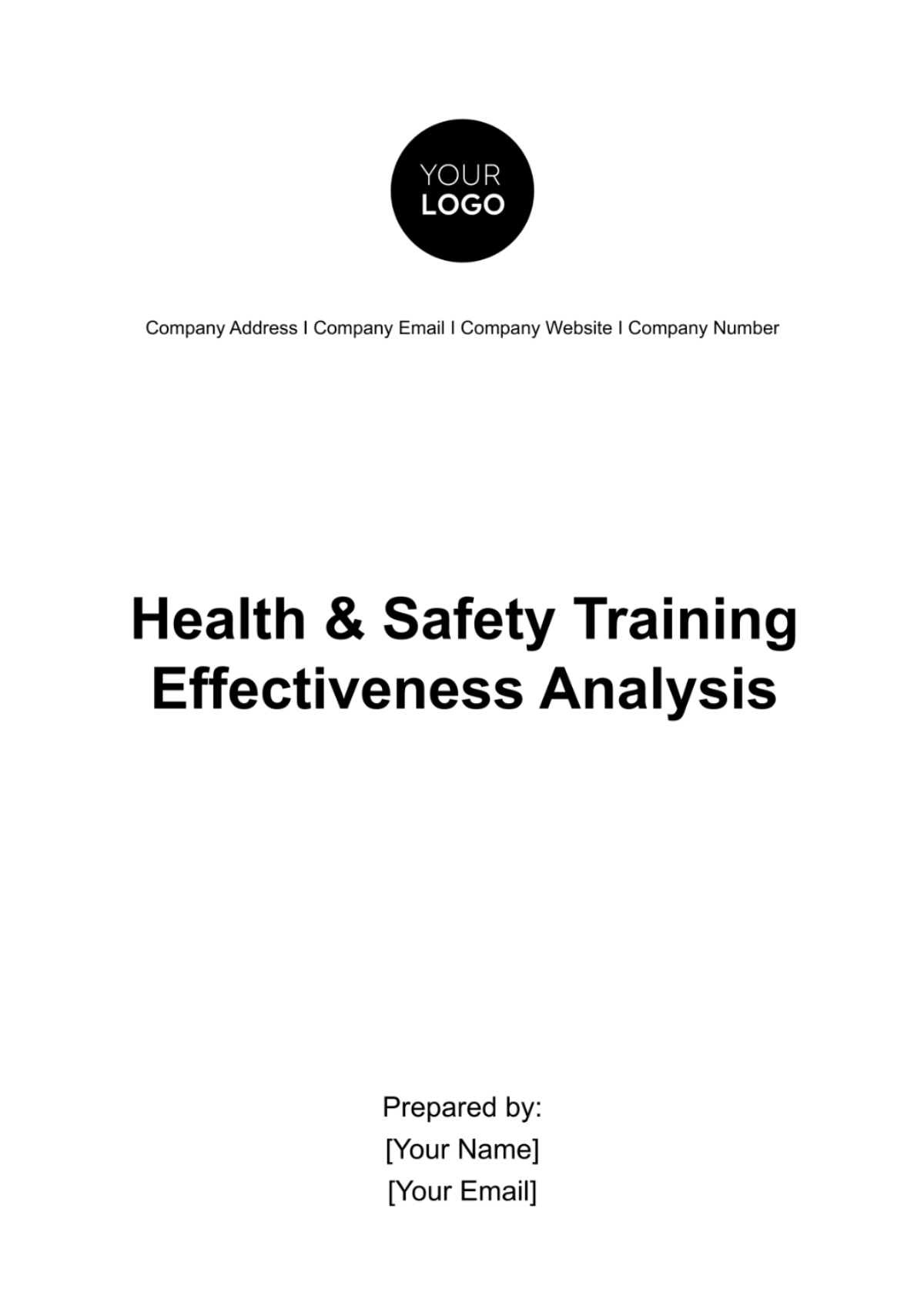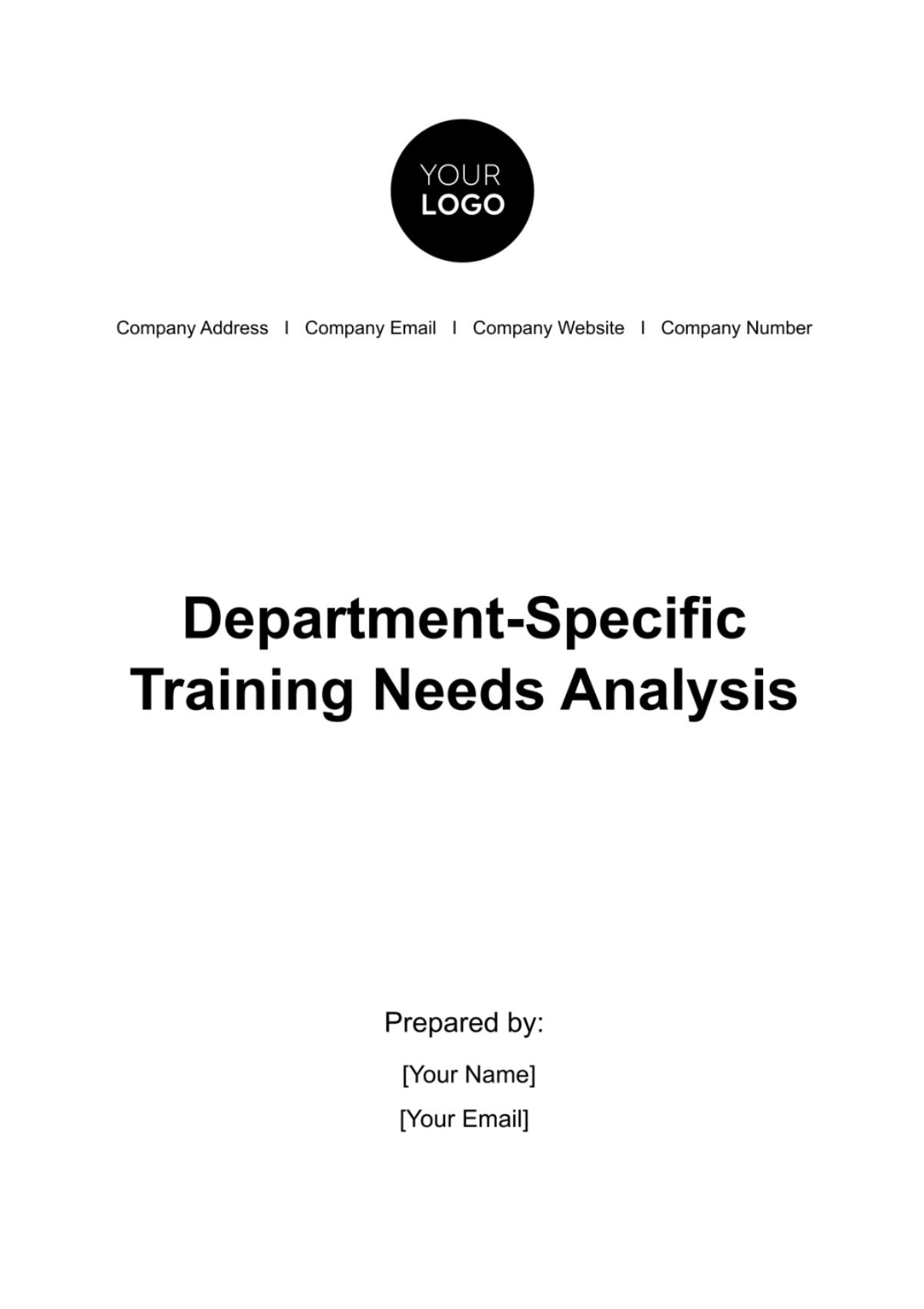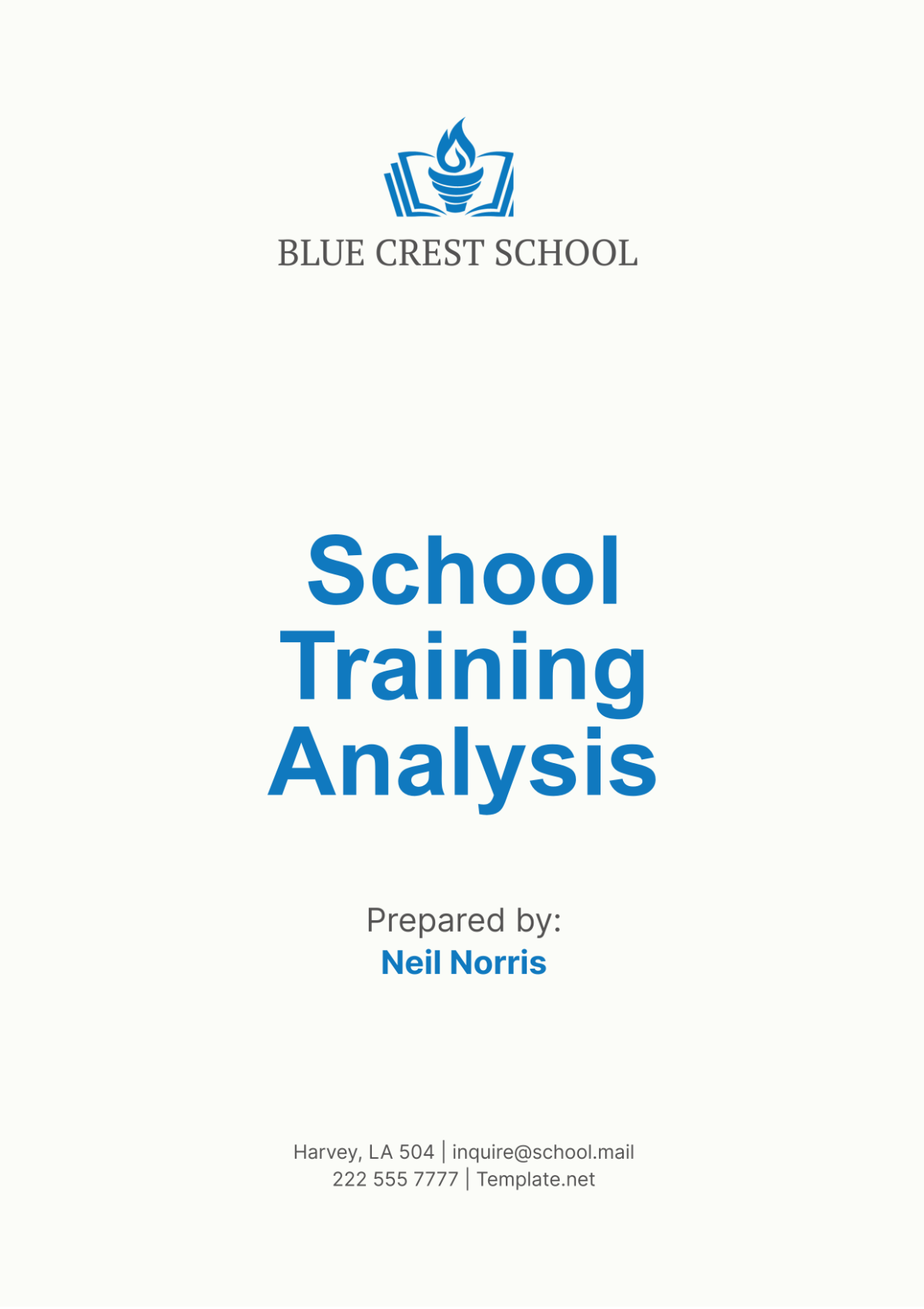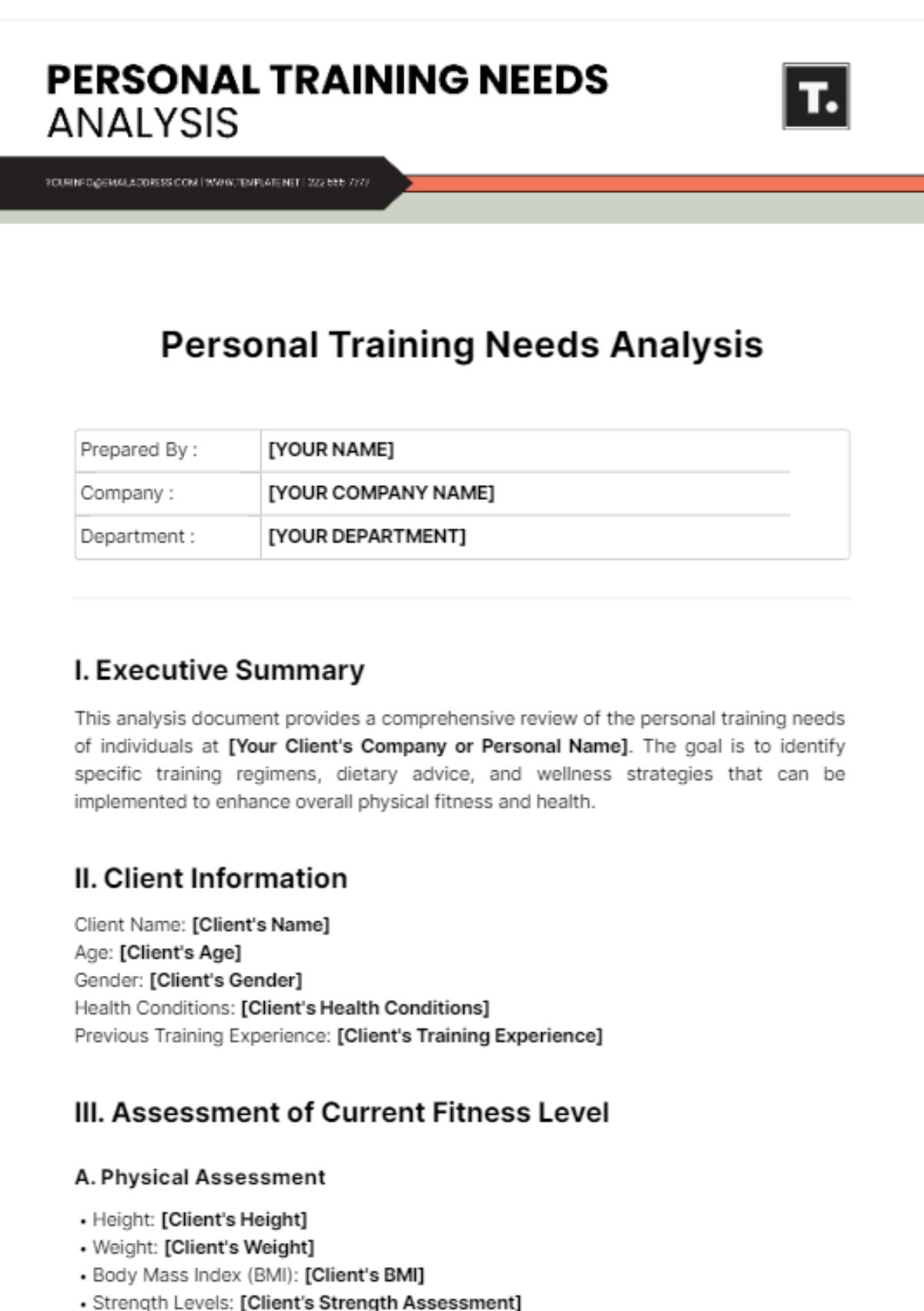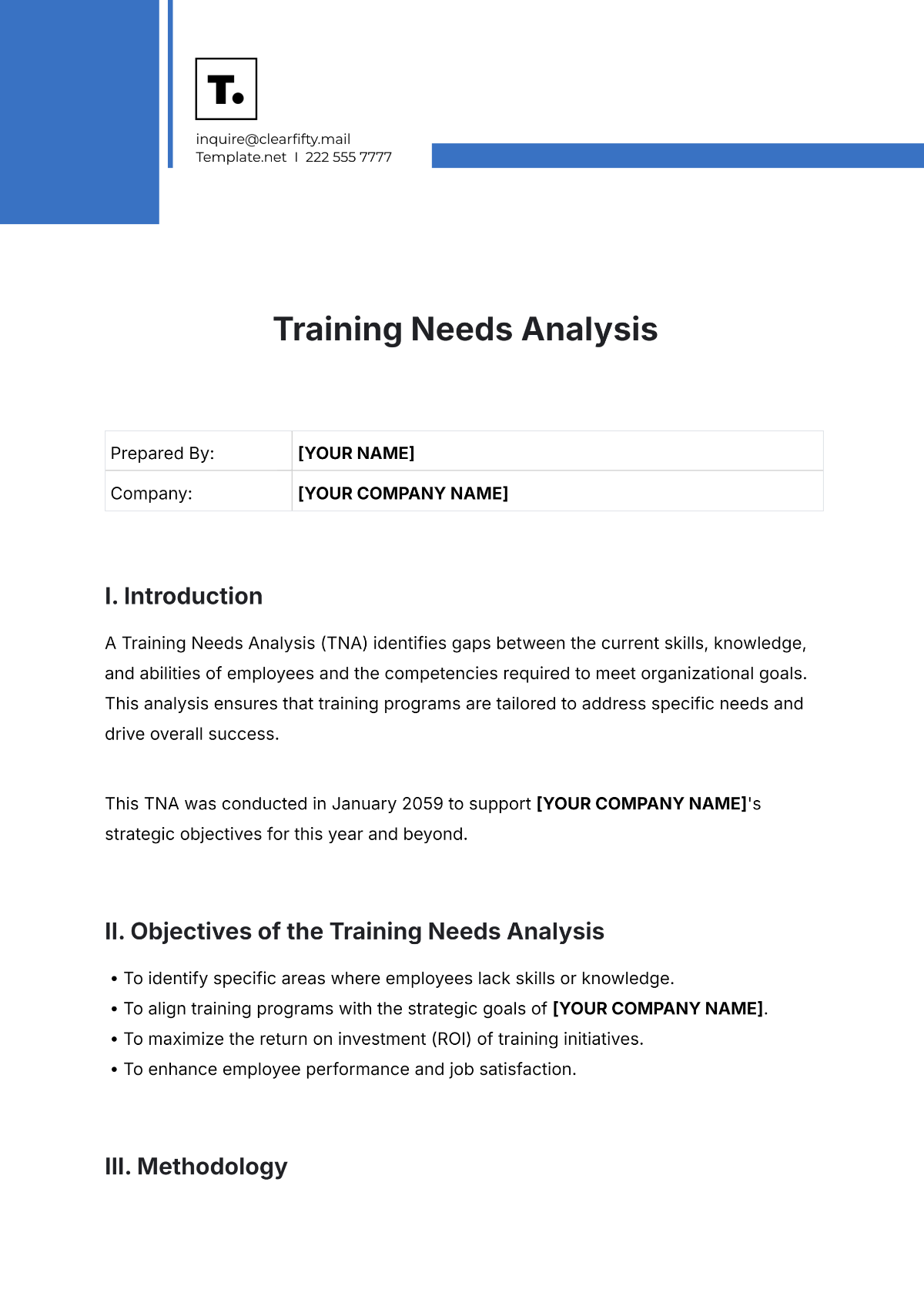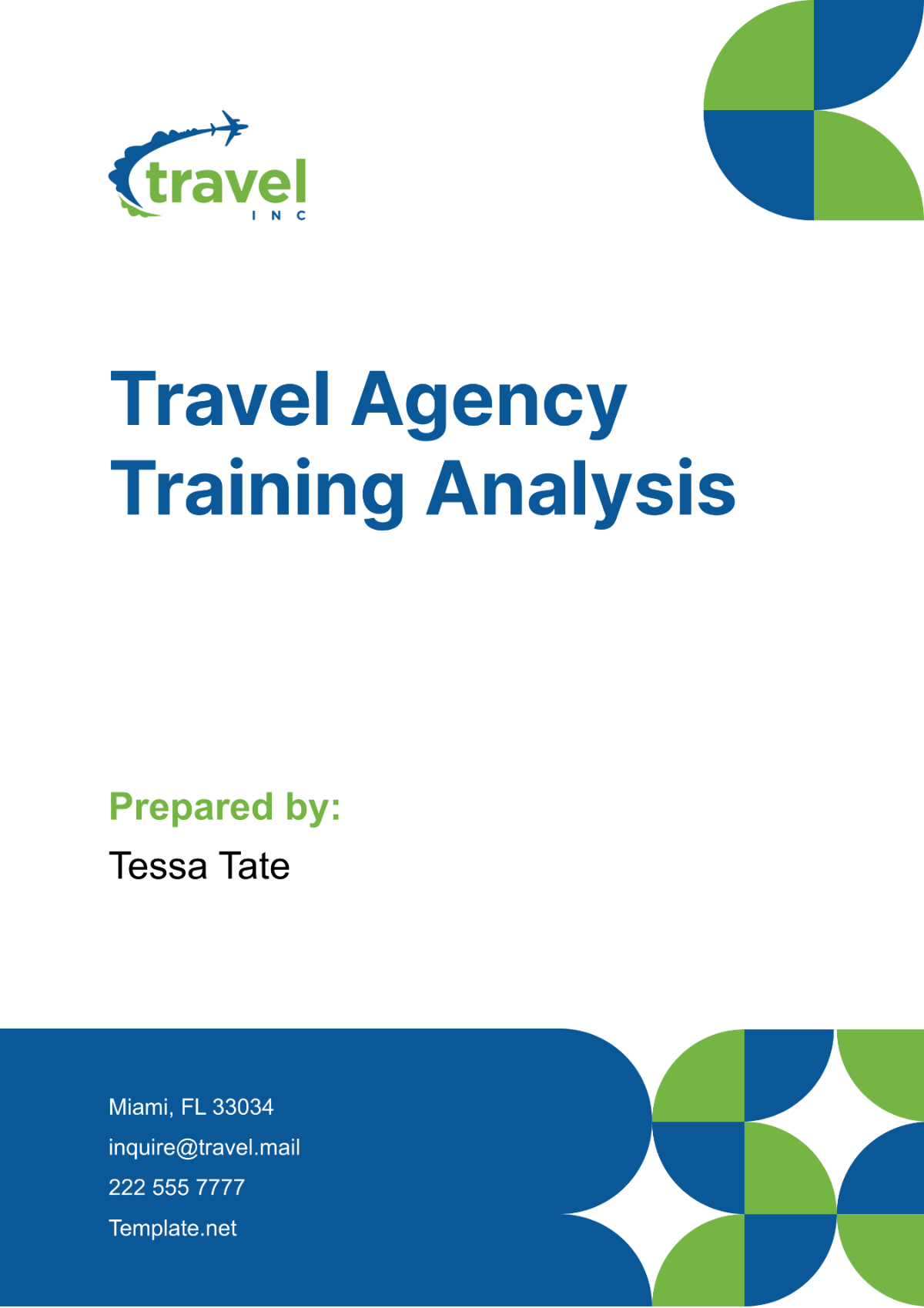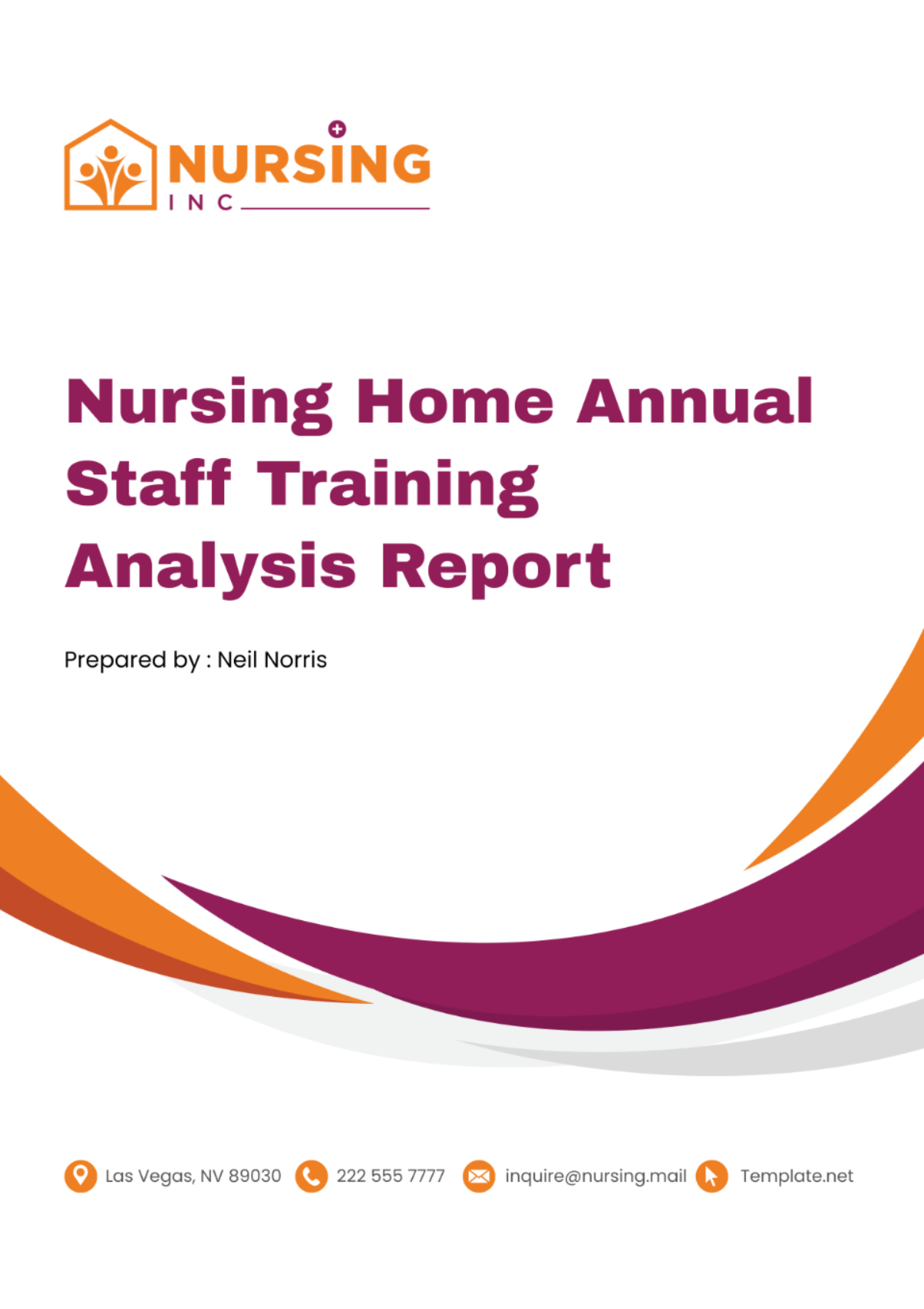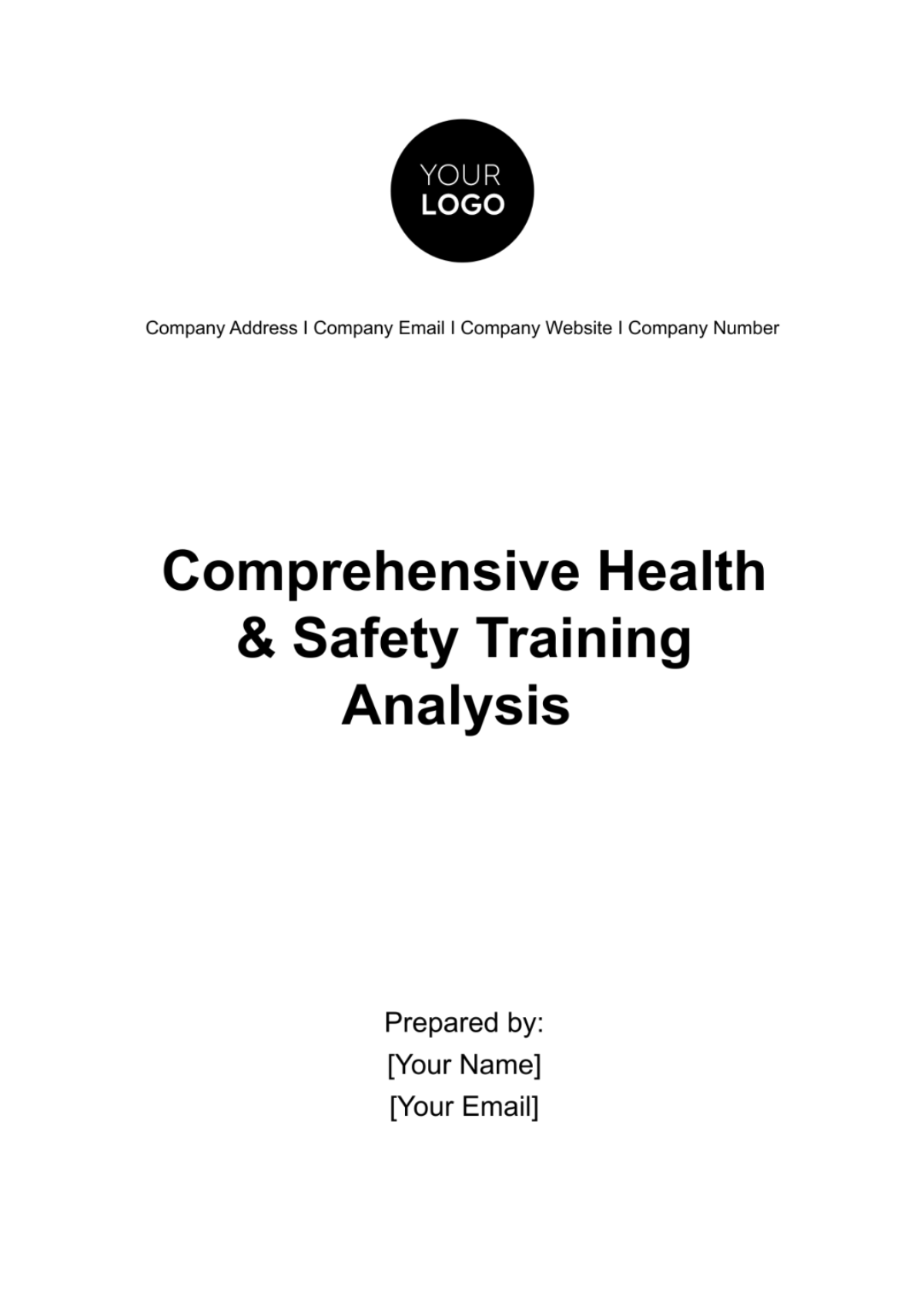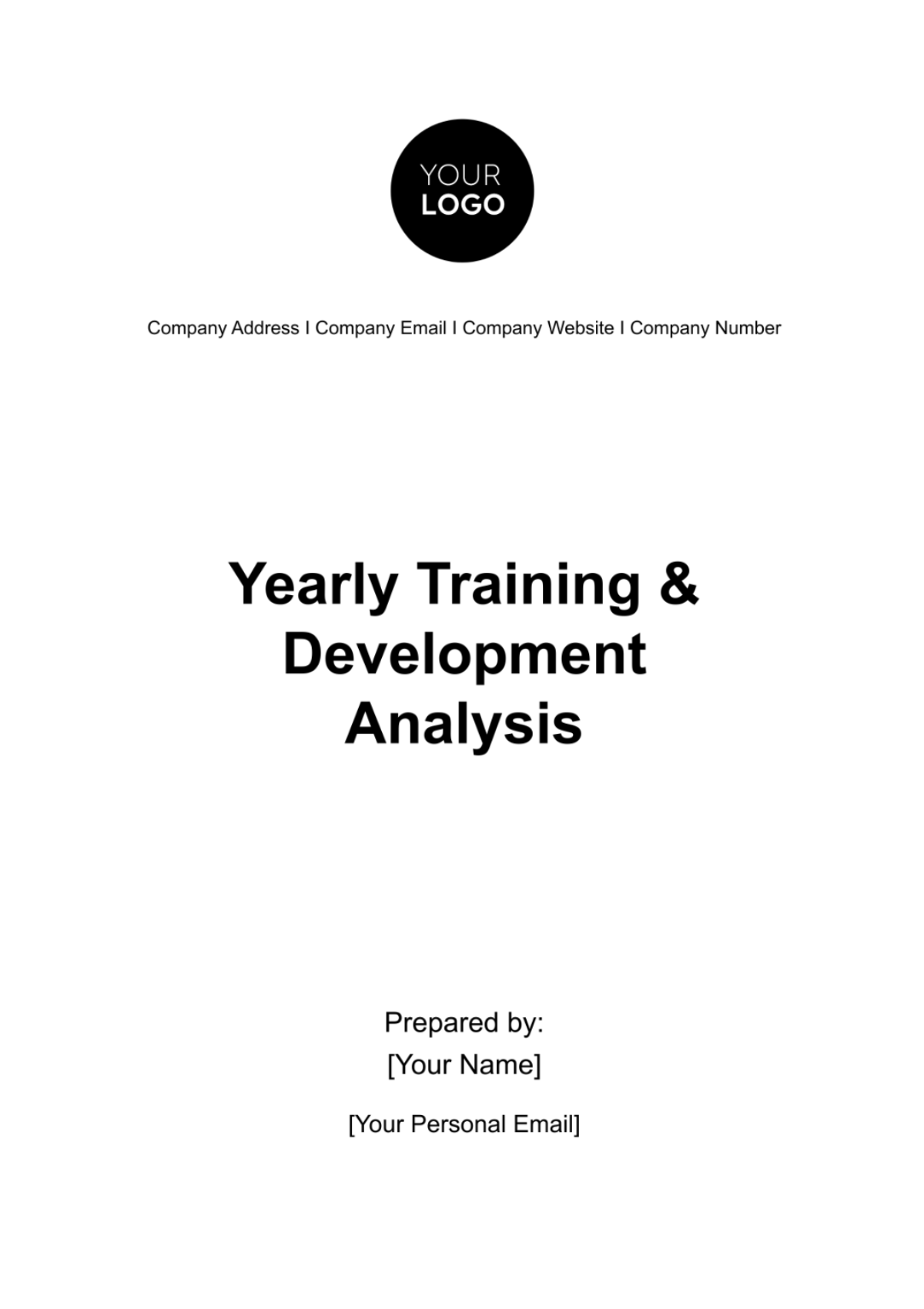Training Needs Analysis
Prepared By: | [YOUR NAME] |
Company: | [YOUR COMPANY NAME] |
I. Introduction
A Training Needs Analysis (TNA) identifies gaps between the current skills, knowledge, and abilities of employees and the competencies required to meet organizational goals. This analysis ensures that training programs are tailored to address specific needs and drive overall success.
This TNA was conducted in January 2059 to support [YOUR COMPANY NAME]'s strategic objectives for this year and beyond.
II. Objectives of the Training Needs Analysis
To identify specific areas where employees lack skills or knowledge.
To align training programs with the strategic goals of [YOUR COMPANY NAME].
To maximize the return on investment (ROI) of training initiatives.
To enhance employee performance and job satisfaction.
III. Methodology
A. Data Collection Methods
Surveys and Questionnaires
A 20-item digital survey was distributed to 150 employees across various departments.
Interviews
Conducted with 20 managers and 10 senior executives to prioritize training needs.
Observation
Direct monitoring of task performance for 30 randomly selected employees over two weeks.
Performance Appraisals
Analyzed annual review data from 2058 to identify consistent areas of underperformance.
B. Analysis Framework
Organizational Level
Reviewed the company's strategic goal of increasing operational efficiency by 15% by Q4 2059.
Task Level
Assessed requirements for tasks in customer support, IT management, and sales operations.
Individual Level
Evaluated employees’ skillsets against job descriptions and industry benchmarks.
IV. Findings
A. Identified Training Needs
Technical Skills: Proficiency in the Quantum Data Analytics Suite (QDA v7.5).
Soft Skills: Advanced negotiation skills and cross-cultural communication.
Compliance Training: Updated protocols for AI ethics and data privacy laws.
B. Skill Gap Analysis
Competency | Current Level | Desired Level | Training Priority |
|---|---|---|---|
Quantum Data Analytics | Low | High | High |
Negotiation Skills | Medium | High | High |
AI Ethics Compliance | Low | High | High |
Customer Service Automation | Medium | High | Medium |
V. Recommendations
Customized Training Programs
Develop tailored training modules for technical and compliance needs.
Blended Learning Approaches
Utilize e-learning platforms like Edvolution and integrate them with in-house workshops.
Continuous Feedback Mechanisms
Implement 360-degree post-training evaluations to measure improvements.
Regularly Update Training Content
Refresh training materials semi-annually to reflect advancements in QDA and AI regulations.
VI. Action Plan
Action Item | Responsibility | Timeline |
|---|---|---|
Develop training curriculum | Training Department | February 2059 |
Schedule online and in-person sessions | HR Department | March 2059 |
Conduct training sessions | External Trainers | April-May 2059 |
Evaluate training outcomes | HR & Training Team | June 2059 |
VII. Conclusion
By implementing this Training Needs Analysis, [YOUR COMPANY NAME] is positioned to address critical skill gaps, enhance operational efficiency, and align with its strategic goals for 2059. A culture of continuous learning will ensure employees remain adaptable in a rapidly evolving industry.

